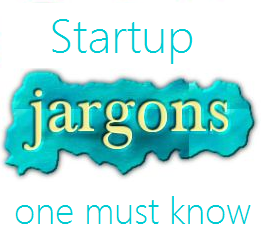
1.Angel Investor
An independent person who invests his/her money in the business.
2. VC (Venture Capitalist)
Investor who offers money to high-potential, early-stage, growth startups. They own stock or equity in the startup.
3.Angel
The spirits of deceased founders and CEOs who are believed to dwell in or around the office.
4.Iteration
A new product that is same as the previous product made by the company, but is introduced with a number after its name.
5.Valuation
The term itself implies, it means the value of a company.
Example: Valuation of Facebook is $67.8 billion. (Year 2013)
6.Seed Round
It is basically the first round of funding that a new venture undergoes to start its operations in the initial stage. After the seed round same venture or a company may go for Seed A round.
7.Pivot
It is the change in the way company used to work or function earlier.
Example: “Instead of selling different machine parts, let’s pivot to making our own machines.”
8.Burn Rate
The rate at which a venture spends its capital. Its unit is capital spent per month or year.
Example: Rs. 50,000/month.
9.Branding
The secret and painful rite of passage ceremony that entrepreneurs must undergo inorder to receive their first round of VC funding.
10.Networking
The startup networking is somewhat different from the normal networking. It is basically an act of referring to industry person. In simple words, building contacts can be a kind of networking.
Example: Exchange of visiting cards
11.Minimal Viable Product (MVP)
It is part of product development. The product is launched in the market with only that much features that gives the idea of the product to the end users. Basically used to test the market and get feedback from the end user.
12.Business Model
Business Model describes how a company plans to generate revenue and profits. It is how you are going to do a business? What is your value proposition? To build that how you are going to use that available resources.

0 comments:
Post a Comment